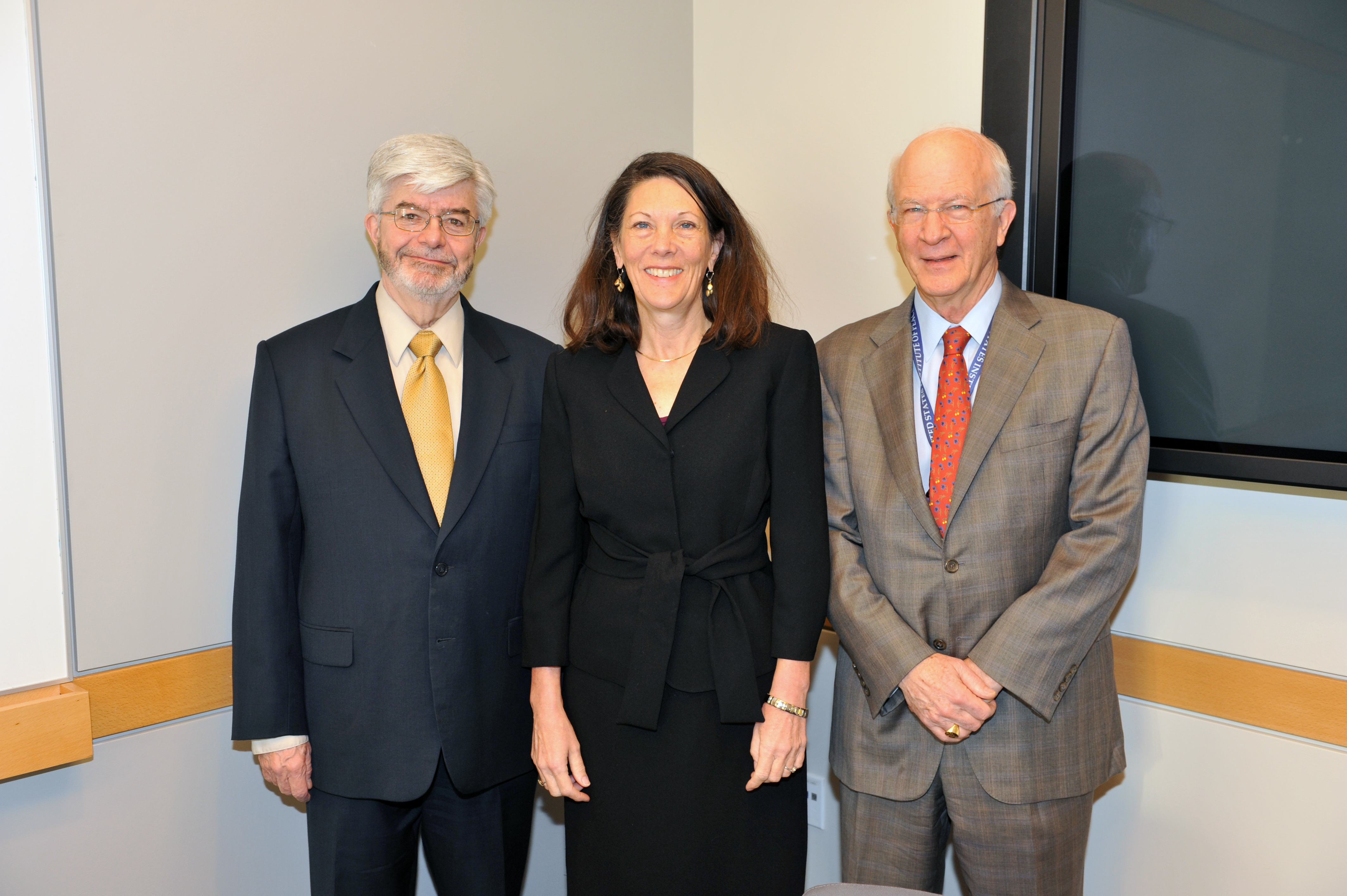Rewiring the Diagram: Regional Conflict Management and Global Security
Regional and global security experts addressed questions on the links between the fields of security and conflict management and the balance between regional/local security initiatives and global ones. The discussion centered on the themes of USIP’s book, "Rewiring Regional Security in a Fragmented World", edited by Chester A. Crocker, Fen Olsen Hampson, and Pamela Aall.
Read the event coverage, "Rewiring Regional Security" Released at USIP Gathering
 Who provides security in this time of rapid global changes is a question that concerns policymakers around the world. Is it the U.N., powerful states, or coalitions of the willing? Or has the responsibility devolved to whoever is able to undertake the responsibility? And if the global security grid is rewiring, is it growing stronger or weaker as a result?
Who provides security in this time of rapid global changes is a question that concerns policymakers around the world. Is it the U.N., powerful states, or coalitions of the willing? Or has the responsibility devolved to whoever is able to undertake the responsibility? And if the global security grid is rewiring, is it growing stronger or weaker as a result?
Understanding regional perspectives is especially important in this period of flux when the United States and others are reappraising their capacity to provide global security and the world faces new transnational challenges along with traditional threats to peace and stability. In this new reality, some regions may be able to fill the gaps that traditional global security providers cannot. What are the new dynamics affecting the roles of international security bodies? What capacity do regions have to provide their own security?
At this event, regional and global security experts addressed questions on the links between the fields of security and conflict management and the balance between regional/local security initiatives and global ones. The program, hosted by Chester A. Crocker, Fen Olsen Hampson, and Pamela Aall, editors of USIP’s new book on Rewiring Regional Security in a Fragmented World, featured the following speakers:
- Richard H. Solomon, President, Member Ex-Officio of the Board of Directors
- Richard Betts, School of International and Public Affairs, Columbia University
- Chester Crocker, School of Foreign Service, Georgetown University
- Fen Hampson, Norman Paterson School of International Affairs, Carleton University
- Ellen Laipson, The Stimson Center
- Chantal de Jonge Oudraat, Stockholm International Peace Research Institute (SIPRI)
- Alvaro de Soto, Global Leadership Foundation and the Ralph Bunche Institute for International Studies, CUNY
- Paul Williams, Elliott School of International Affairs, George Washington University
Event Photos
Explore Further
- Listen to the audio recording of this event.
- Learn more about the USIP Publication, Rewiring Regional Security in a Fragmented World.
Related Academy Courses
- Supporting Police Reform: Capacity Building for Advisers and Trainers
- Peacebuilding Organizations and Institutions
- Stabilization and Peacebuilding: Understanding Dynamic Processes and Making Them Work



